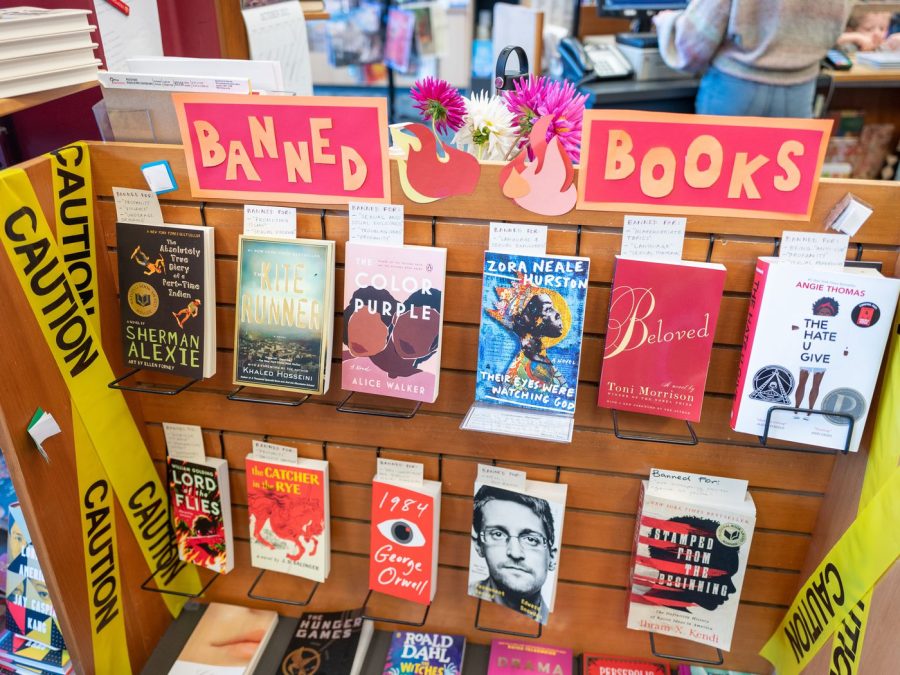The Battle on Books
February 18, 2022
To Kill a Mockingbird, The Catcher and the Rye, The Great Gatsby, The Grapes of Wrath, The Lord of the Flies, to name a few, are classics that are being removed from school libraries. So what exactly is the reason for banning books?
What is the issue here? Do the powers above think the subject matter is too sensitive for students to handle? Or do they want students to throw a glossy coat over truly understanding the history of the time period in which these books were written. Banning books is certainly not a new problem; it has in fact been a longstanding issue across the country for many decades.
So why are we seeing a major surge of books being banned now?
There has always been a divide between citizens, but now it seems to have gotten worse. Many feel threatened by books addressing certain issues, including racial injustice, gender, sexuality, and social inequality.
Supporters of the book bans say children will be influenced by the contents, which they believe could be harmful. The most common fear is that the said books will bring curiosity or interest to certain issues that parents feel are inappropriate. If a book is required to be read in a classroom, and parents don’t want their child to read about it, that parent can have a discussion about excusing the child from reading the book. But why ban it so no student has the opportunity of reading it?
“As teachers, I feel like it is our job to expose students to different ideas, periods of writing, and a variety of authors,” says Lori Snowden, a reading specialist here at Briar Woods. “But along that line, we don’t want to force our students to read books that may be sensitive to them… Or there may be contradictions between their own personal beliefs, or their families. But I do believe that students of all ages have a right to read whatever books that they’re interested in.”
“I think a lot of things that people are concerned about in these banned books are conversations that parents should be having with their kids anyway, so I understand why parents might be concerned…” said English Department Chair, Jennifer Bridges. “But I don’t think that banning books is good for anybody, reading teaches us a whole lot of things and allows us to see other people’s perspectives” Mrs. Bridges gives her students a brief overview of what sort of subjects a book covers and also allows them to do some research on their own. By doing this it ensures that each student is comfortable with their book. If a parent reaches out and has an issue with a book that their child has to read, the student “gets to pick an alternative book” and the “assignments are general enough so that it can be applied to a different book.” This also allows students to develop the skills needed from that certain activity.
If you want to take a stand against this battle on books, the Freedom to Read Foundation is a great organization to join and support. They are dedicated to protecting the public’s right to access books and information kept in the country’s libraries.
As Stephen King once said, “Read whatever they’re trying to keep out of your eyes and your brain, because that is exactly what you need to know.”



